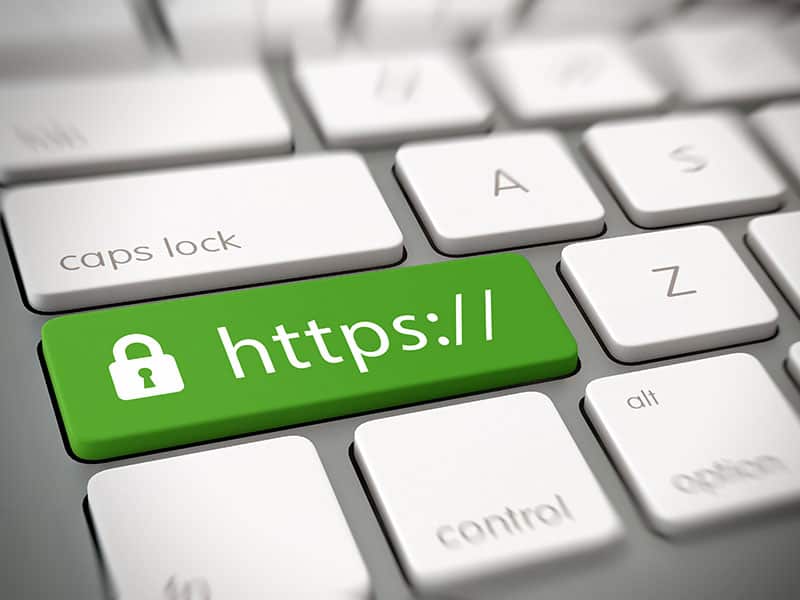- Website Design & Development | Glastonbury, Marlborough & East Hartford, CT
- 860 559 9124
What’s an SSL Certificate? What does it do? Why is it Necessary?
 In short, it’s all about security.
In short, it’s all about security.
SSL stands for Secure Sockets Layer and is an industry standard security measure used for establishing an encrypted link between an internet user (via a browser) and a website (more specifically a web hosting server).
The use of an SSL certificate is indicated in a couple of different ways: Look at the URL of a website. Is there a lock icon before the URL in a browser’s address bar? Does the URL begin with https:// (not just http:// – the s stands for secure)? Both are indications an SSL certificate is protecting that website.
Encrypts Sensitive Information
Potentially, any computer between your device and the server can see sensitive information – credit card numbers, user names, passwords, social security numbers, you name it – if it’s not encrypted.
And, rest assured, hackers and bots are out scanning the web trying their best to capture that highly valuable data.
When an SSL certificate is used, that information becomes unreadable to everyone except for the server you are sending the information to.
Why You Need One
First and foremost, Google now penalizes unsecure websites by marking them as unsafe. Why? Plain and simple: They want to be a trusted search engine and are trying every way possible to show only secure sites in their search results.
Second, it will add a layer of protection from cyber criminals.
Third, SSL certificates build trust and brand power. When your visitors see visuals like the lock icon or green address bar it provides them with as sense of security.
Are you sure this Applies to Me?
Yes. Google’s policy affects every single website, not just websites that deal with online sales or payments. No matter the purpose of your website – you need an SSL certificate.



